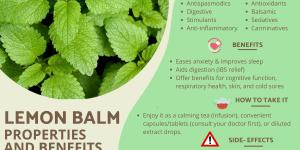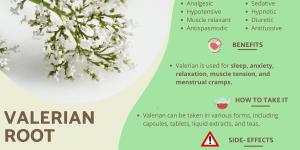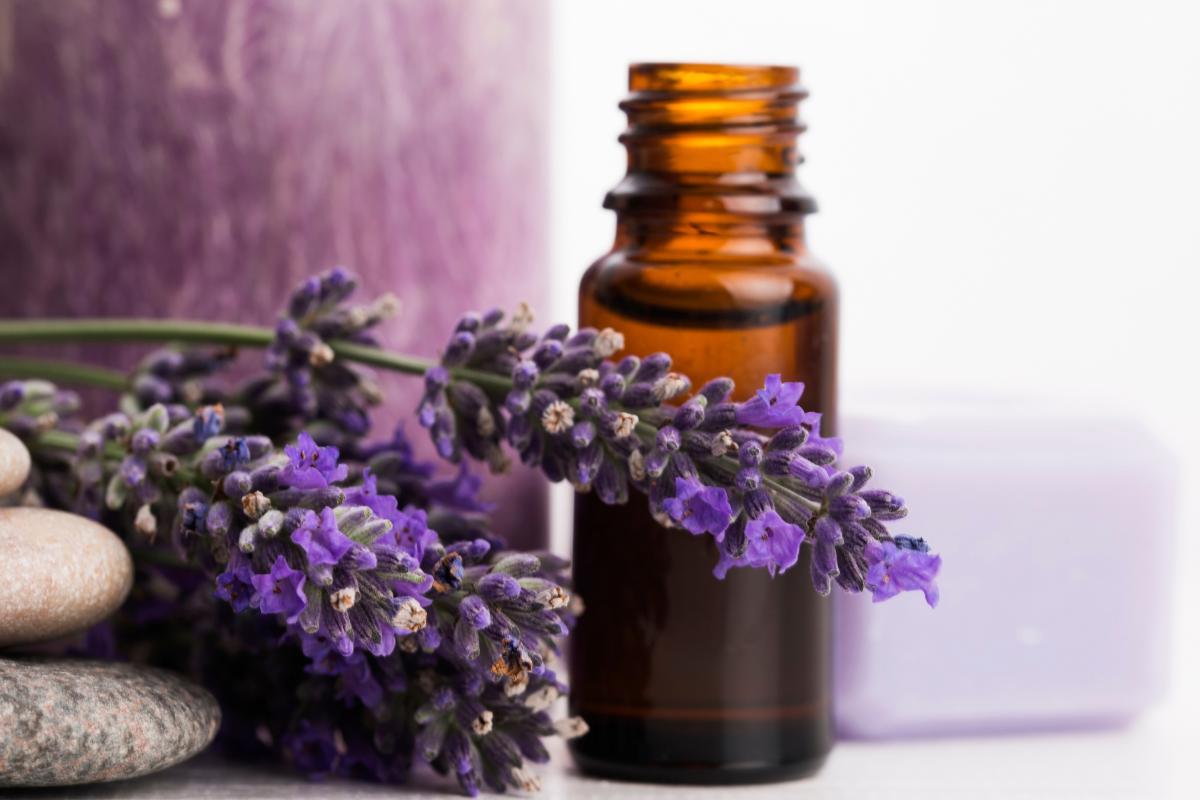Lavender - Properties, Benefits, and Side Effects


Lavender is celebrated for its multifaceted therapeutic properties, making it a prized herb in traditional and modern herbal medicine. This aromatic plant, known scientifically as Lavandula angustifolia, harbors a wealth of bioactive compounds that contribute to its health benefits. Explore its diverse properties, from calming effects to potential healing benefits. Learn about safe usage and potential side effects.
The article from thedailyECO provides an exploration of lavender, detailing its numerous properties and benefits. We also address some precautions, potential side effects, contraindications, and guidelines on proper usage.
Properties of lavender
The properties of lavender, derived primarily from its chemical composition and pharmacological effects, are what make it a highly valued plant in herbal medicine, aromatherapy, and cosmetics.
Lavender's distinctive aroma and therapeutic benefits are attributed to its rich blend of essential oils, including linalool, borneol, and cineol, alongside flavonoids, tannins, coumarins, and phytosterols. These compounds are responsible for most of lavender's beneficial properties.
Here is a detailed look at these properties:
- Antimicrobial
- Anxiolytic and sedative
- Anti-inflammatory
- Antioxidant
- Antispasmodic
- Analgesic
- Carminative
- Hypotensive
- Neuroprotective
Together, these qualities support lavender's many uses in health and wellbeing, providing a holistic and all-natural method of treating a range of medical and psychoogical issues.

Benefits of lavender
As mentioned before, lavender offers several advantages for overall lifestyle, mental and physical health. These benefits result from its special qualities, which allow it to use the chemical makeup of the plant for a range of purposes:
- Stress and anxiety relief: lavender's anxiolytic and sedative effects make it exceptionally effective in reducing stress and anxiety levels. Its calming scent helps soothe the nervous system, promoting relaxation and a sense of peace.
- Improved sleep quality: the sedative properties of lavender can significantly improve sleep quality. Its use in aromatherapy is linked to longer sleep duration, better sleep quality, and reduced insomnia, making it a natural aid for those with sleep disorders.
- Skin health: thanks to its antimicrobial and anti-inflammatory properties, lavender is beneficial in treating acne, reducing inflammation, and accelerating wound healing. It's also used in skincare to soothe eczema and psoriasis and to promote overall skin health.
- Pain management: lavender has analgesic properties that can alleviate various types of pain, including headaches, migraines, muscular pain, and joint pain, providing a natural alternative to traditional painkillers.
- Digestive support: the antispasmodic and carminative effects of lavender help in relieving digestive discomforts such as gas, bloating, and indigestion. It promotes smooth digestion and can ease symptoms of upset stomach.
- Respiratory health: lavender's antispasmodic properties make it useful in treating respiratory issues by relieving symptoms of asthma, bronchitis, cough, and cold. It helps in easing breathing and reducing the severity of coughs.
- Antimicrobial protection: the broad-spectrum antimicrobial activity of lavender makes it effective in preventing infections and treating minor cuts, wounds, and burns by inhibiting the growth of bacteria and fungi.
- Mood enhancement: the aromatic properties of lavender can uplift mood, reduce feelings of depression, and contribute to a more positive mental state. Its use in aromatherapy is associated with reduced levels of stress and a happier mood.
- Cardiovascular Health: lavender may have a beneficial effect on heart health by lowering blood pressure and reducing the risk of heart disease. Its relaxing effects help in managing stress and anxiety, which are risk factors for hypertension and heart conditions.
- Antioxidant activity: by neutralizing free radicals, lavender's antioxidant properties contribute to reducing oxidative stress and protecting against cellular damage, which can prevent aging and various chronic diseases.
Did you know lavender can repel mosquitoes? Learn more about it and other plants that can do the same in our article.
How to take lavender
Lavender is a versatile plant with various uses, so the way you "take" it depends on your desired outcome. Here are some common methods:
Lavender infusion
To prepare a lavender infusion, utilize the flowering tops. Measure one tablespoon of these tops for each cup of water. Combine the water and lavender in a pot, cover with a lid to preserve the essential oils, and bring to a boil. After removing from heat, let it steep for an additional 5 minutes, keeping it covered to enhance the infusion's potency. Strain the mixture before drinking. Sweeten according to preference. For those interested in having lavender on hand for infusions, consider exploring its purchase options.
Hot lavender baths
Lavender can also enhance sleep quality through hot baths. Use 70 grams of lavender per 2 liters of water, boil, and then strain the mixture. Add this infusion to your bathwater for a sustainable and waste-free alternative to bath bombs, offering relaxation benefits.
Lavender essential oil
Lavender essential oil is effective for anxiety relief. Its volatile molecules quickly enter the bloodstream upon skin contact, providing therapeutic effects. Always dilute the essential oil before topical application to avoid irritation. Mix three drops of the oil with a carrier oil, such as coconut or almond oil, and apply to the desired area or use as a massage oil to alleviate muscle tension. Lavender essential oil can also be used for inhalation directly from the bottle or a tissue for continuous benefits throughout the day.
Homemade lavender macerate
If lavender essential oil is unavailable or you prefer a DIY approach, create a macerate by submerging a handful of lavender in a jar filled with oil. Let it sit for at least one month before straining. This homemade oil captures the plant's benefits, but is less potent than the essential oil. Use as directed for the essential oil, without the need for dilution.
Tinctures and fluid extracts
These specialized preparations, often available through apothecaries or health food stores, offer concentrated forms of lavender. Available as alcoholic or hydroglycerinated extracts to accommodate those avoiding alcohol, they're typically used at doses of up to 50 drops daily, following the specific guidance provided on the packaging.

Lavender contraindications and side effects
While lavender is generally considered safe for most people, there are some potential risks and contraindications to be aware of:
Contraindications:
- Allergies: individuals with known allergies to plants in the Lamiaceae family (mint, oregano, basil), lavender's active ingredients (linalool, limonene), or any other component of the plant should avoid its use.
- Low blood pressure: lavender has hypotensive properties, meaning it can lower blood pressure. Individuals already experiencing low blood pressure should avoid lavender or use it with caution, monitoring for potential dizziness, nausea, or other issues.
- Pregnancy and breastfeeding: research on lavender's safety during pregnancy and breastfeeding is limited. As a precaution, it's generally recommended to avoid using lavender in these situations.
Side effects:
- Oral consumption: consuming lavender orally, especially in large amounts, can cause constipation and increased appetite. Start with small doses and monitor individual reactions.
- Undiluted essential oil: using undiluted lavender essential oil directly on the skin can cause irritation and dermatitis. Always dilute essential oils in a carrier oil before topical application, typically at a 2% concentration or less.
- Sun sensitivity: some individuals may experience increased sun sensitivity when using lavender topically. Avoid prolonged sun exposure after using lavender and consider using sunscreen.
- Interactions with medications: lavender may interact with certain medications, including blood thinners and sedatives. Consult your healthcare provider before using lavender if you take any medications regularly.
Remember, this information is not a substitute for professional medical advice. Always consult with a qualified healthcare professional before using lavender, especially if you have any underlying health conditions or are taking medications.
Unlock the benefits of homegrown lavender: fragrance, relaxation, and natural beauty! Watch our video to learn how to care for stunning lavender plants.

If you want to read similar articles to Lavender - Properties, Benefits, and Side Effects, we recommend you visit our Natural remedies category.
- Cebrián, J. (2002) Dictionary of medicinal plants . Barcelona: RBA Books.







